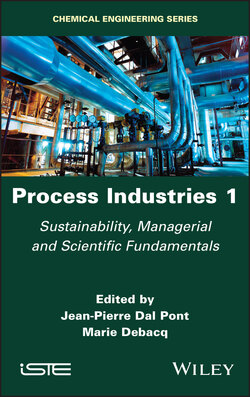Читать книгу Process Industries 1 - Группа авторов - Страница 21
1.2. Founding fathers of the industrial enterprise
ОглавлениеThe industrial enterprise as we see it today took shape at the end of the 19th Century. Among all the inventors and entrepreneurs who shaped it, we have chosen four giants from the 19th and 20th Centuries. These men contributed to an unprecedented industrial boom and profoundly changed the society of the time. We could no doubt have chosen others, but, as we know, “to choose is to renounce”.
Detailed explanations on the contribution of these four great figures to the industry can be found in (Dal Pont 2012). To summarize:
– Frederick W. Taylor, father of Taylorism, analyzed the work of the workers at the workshop and evaluated each gesture in time and motion to increase productivity. A specific job was shared - divided - between several individuals. Humans are enslaved to the machine: who does not remember Charlie Chaplin’s Modern Times? Taylor was behind workers with a stopwatch; he sometimes owed his salvation to running away;
– Henri Fayol, father of Fayolism, invented the functions of management, a model still widely in use today (see section 1.3);
– Henry Ford, father of Fordism, was a strong supporter of Taylorism. A farmer’s son, he invented the assembly line and standardization, which made the automobile a cheap product, as well as the industrial integration. His Model T, “a motor car for the great multitude” in 1908, was full of inventions (transmission, suspension, etc.). It was the car of the century!
– Thomas Edison, the legendary inventor with 1,093 patents, created laboratories to do business: as soon as the luminescent lamp left Menlo Park in 1882, it illuminated Pearl Street in New York, thanks to the direct current generated by its first power plant. We can say that Edisonism is the way to create business by doing research, R&D, or research and innovation, as we would say today.
NOTE.- Why not Gustave Eiffel? Inventor and businessman, Gustave Eiffel is the archetype of the 19th Century engineer. He left works that are still admired by the masses. Should we not talk about the Eiffel Tower? However, he did not affect and transform the society like the “nominees” mentioned above did.
Figure 1.1. Portraits of the fathers of the modern enterprise (from left to right) Frederick Winslow Taylor (1856-1915), Henri Fayol (1841-1925), Henry Ford (1863-1947), Thomas Edison (1847-1931)
